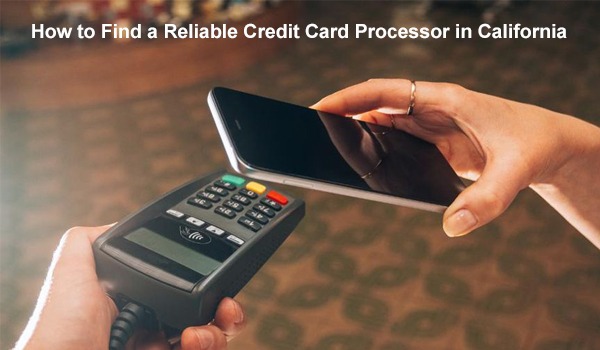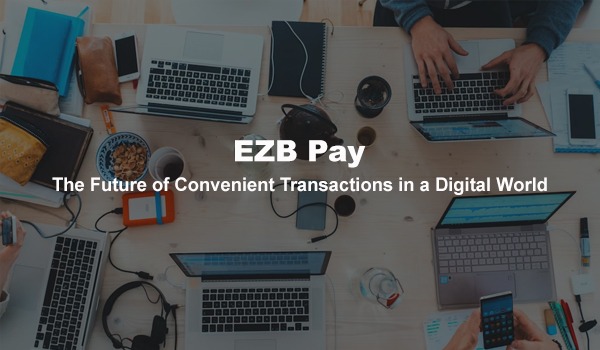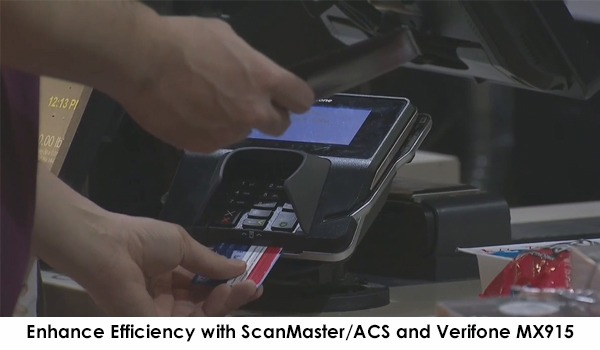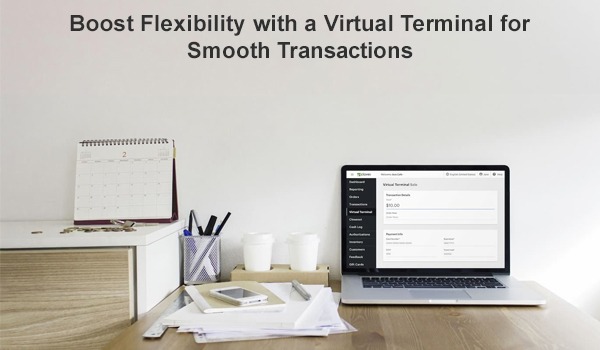
Introduction
Navigating the world of credit card processing in California can feel like trying to find a trustworthy friend in a crowd of strangers. It's all about knowing what to look for and where to look. Let's embark on this journey together, guiding you through the intricate process of selecting a credit card processor that won't let you down when the going gets tough. Prepare to delve into the essentials of finding a reliable partner in the dynamic financial landscape of California.
Choosing the right credit card processor is akin to picking a teammate for a relay race; their reliability can make or break your success. California’s diverse and dynamic market demands nothing short of excellence in handling transactions smoothly. In this guide, we'll peel back the layers of credit card processing, shedding light on the what, the why, and the how-to. Prepare to arm yourself with knowledge that'll steer you towards making an informed choice.
Understanding Credit Card Processing
Defining Credit Card Processing
Credit card processing serves as the vital lifeblood of sales operations, extending beyond mere transactions to become the cornerstone of financial interactions. Visualize it as a robust and dynamic bridge connecting your customers' payments to your bank account. At its core, the credit card processor acts as a stalwart support structure, meticulously ensuring the smooth flow of funds with unwavering reliability.
The Role of a Credit Card Processor
Credit card processors are like essential protectors, trusted to keep financial transactions safe. They do more than just handle payments; they guard sensitive information, fight against fraud, and make sure transactions happen smoothly. They work behind the scenes, quietly making sure every card swipe, tap, or online checkout is secure and efficient. They're like silent heroes ensuring everything runs smoothly and securely, so you can focus on your business without worrying about the safety of your transactions.
Different Types of Transactions Processed
Credit card processors are incredibly versatile, skillfully managing a wide range of transaction types. They handle everything from the classic magnetic stripe swipes to the advanced EMV chip dips and the seamless input of online data. This adaptability allows them to navigate through various payment methods effortlessly, ensuring smooth transactions for businesses and customers alike. Recognizing and utilizing this multifaceted capability is crucial when choosing a processor that seamlessly aligns with and improves your business operations. By leveraging their versatility, businesses can enhance transaction efficiency, customer satisfaction, and overall financial performance.
The Importance of Reliability
Reliability within a payment processing system is a critical aspect that significantly impacts business operations. When a system experiences downtime or errors, it can strain customer relationships and have detrimental effects on the bottom line. In contrast, a reliable payment processing system fosters trust and enhances customer satisfaction. Consider the frustration and potential financial losses associated with failed transactions during peak sales periods. Every moment of system downtime not only results in lost revenue but also tarnishes the reputation of the business. Therefore, ensuring reliability in payment processing is essential for maintaining operational efficiency and customer trust. A dependable system minimizes the risk of disruptions, providing peace of mind to both businesses and their customers. In today's competitive business environment, reliability is a fundamental requirement for sustainable success.
Understanding PCI Compliance
PCI compliance transcends mere adherence to regulations; it serves as a robust shield safeguarding businesses against the pervasive threats of data breaches and fraud. Compliance with these standards not only ensures regulatory alignment but also demonstrates a steadfast commitment to prioritizing customer security above all else. By diligently adhering to PCI requirements, businesses establish a fortified defense mechanism, fortifying their operations against potential vulnerabilities and instilling confidence in their clientele. Embracing PCI compliance isn't merely a regulatory obligation—it's a strategic imperative for protecting sensitive data and preserving the trust of customers in today's digital landscape.
Other Regulations in California
Merchants processing payments globally, including those in California, must adhere to a myriad of regulations to ensure legal compliance and consumer protection. These include consumer privacy laws, which govern data protection, consumer protection laws ensuring fair business practices, and electronic payment regulations outlining rights and responsibilities in electronic fund transfers. Additionally, anti-money laundering (AML) and know your customer (KYC) regulations mandate customer identity verification and transaction monitoring to prevent fraud. Furthermore, merchants must comply with false advertising regulations to avoid deceptive marketing tactics. Understanding and adhering to these regulations are crucial to maintaining legal compliance, safeguarding consumer privacy, and fostering trust with customers.
Understanding Your Business Requirements
When it comes to selecting a payment processor, it's essential to identify your specific business needs and requirements. This involves assessing factors such as the nature of your business, the types of transactions you handle, and your expected growth trajectory. By understanding your unique needs, you can make informed decisions and choose a processor that aligns with your goals and objectives.
- Assessing Your Transaction Volume: Transaction volume plays a crucial role in determining the most suitable payment processor for your business. Whether you're a small-scale operation with limited transactions or a high-volume enterprise processing thousands of transactions per month, your transaction volume will influence the pricing structure, features, and capabilities you require from a processor. By accurately assessing your transaction volume, you can choose a processor that offers competitive rates and can scale with your business as it grows.
- Determining Your Processing Needs: The types of transactions you process, such as in-person, online, or mobile transactions, have a significant impact on the choice of payment processor. Different processors specialize in various transaction channels and offer tailored solutions to meet the specific needs of each channel. For example, if you primarily sell products at physical retail locations, you may require a processor with robust point-of-sale (POS) solutions. Conversely, if you operate an e-commerce website, you'll need a processor that provides seamless online payment integration. Understanding your processing needs allows you to select a processor that can efficiently handle your preferred transaction types and channels.
Understanding Fees and Costs
- Common Fee Structures: Navigating the landscape of processing fees entails unraveling a labyrinth of fee structures, including fixed fees, variable rates, and incidental charges. Each structure carries its nuances and implications, making it imperative for merchants to decode them to forecast processing costs accurately. Fixed fees, such as account maintenance fees or subscription fees, provide predictability in expenses, easing budgeting efforts. Meanwhile, variable rates, expressed as a percentage of transaction amounts, fluctuate based on transaction types and risks, necessitating an understanding of interchange fees and discount rates. Additionally, incidental charges, like chargeback fees or PCI compliance fees, may occur sporadically and require careful monitoring to minimize costs.
- Negotiating Fees with Processors: In the realm of business, negotiation is not merely a skill but a necessity. Merchants are encouraged to engage in discussions with potential processors to negotiate rates and terms that align with their business objectives. Recognizing that a mutually beneficial partnership is the ultimate goal, merchants should leverage their bargaining power to secure favorable terms. Through open dialogue and collaboration, merchants can forge partnerships that optimize processing costs while maximizing value for both parties involved.
Exploring Potential Processors
Delving into the realm of payment processors requires thorough research and evaluation. From scrutinizing reputation and security measures to assessing customer support and service offerings, each aspect plays a pivotal role in making an informed decision.
- Assessing Reputation and Reviews: In the digital era, a processor's reputation holds significant sway. Dive into online reviews and seek feedback from fellow business owners to gain valuable insights into their experiences. Evaluating reputation and reviews can provide clarity on what to expect and help navigate potential pitfalls.
- Ensuring Security and Fraud Protection: In today's landscape fraught with cyber threats, a processor's commitment to security is paramount. Inquire about their encryption methods, fraud detection capabilities, and adherence to California's stringent data protection laws to safeguard your business and customer data from potential breaches.
- Prioritizing Customer Support and Services: The importance of 24/7 support cannot be overstated. When issues arise, a responsive customer support team can make all the difference in resolving them swiftly and efficiently. Prioritize processors that offer reliable support services to mitigate disruptions and ensure uninterrupted operations.
- Comparing Offers and Services: Selecting a processor is akin to finding the perfect match for your business. Create a comparison chart to meticulously weigh the pros and cons of each option, ensuring that your final choice aligns with your specific needs and expectations.
- Leveraging Demos and Trial Periods: Don't hesitate to test the waters with demos and trial periods. These opportunities provide invaluable insights into how a processor performs in real-life scenarios, allowing you to make an informed decision that positively impacts your business operations.
Implementation and Beyond
Embarking on the journey of implementing a new payment processor demands careful planning and execution. From setting up the new system to ongoing monitoring and staying updated with industry trends, each step plays a crucial role in ensuring a seamless transition and maximizing the benefits of your new payment processing solution.
- Setting Up Your New System: Transitioning to a new processor should not disrupt your business operations. Meticulously plan the setup process, ensuring that all necessary configurations are in place and that your team is well-trained to handle the new system effectively. Thorough training and support during the setup phase are essential to minimize downtime and ensure a smooth transition.
- Monitoring and Managing: Regularly assessing your processor's performance is vital for identifying any issues early on and addressing them promptly. Stay proactive in managing your relationship with the processor, maintaining open communication channels, and seeking continuous improvement opportunities. By closely monitoring performance metrics and customer feedback, you can ensure that the processor meets your business needs and delivers the expected outcomes.
- Staying Updated: The payment processing landscape is constantly evolving, with new technologies and regulations shaping the industry's future. Stay informed about industry changes and technological advancements to ensure that your business remains competitive and compliant. Embrace innovation and proactively seek opportunities to leverage emerging trends, such as mobile payments or contactless transactions, to enhance your payment processing capabilities and stay ahead of the curve.
By following these steps and adopting a proactive approach to implementation and management, you can maximize the benefits of your payment processor and position your business for long-term success in an ever-changing marketplace.
Conclusion
Finding a reliable credit card processor in California is a pivotal step in safeguarding your business’s financial health and maintaining customer trust. By thoroughly vetting potential partners, understanding your needs, and staying informed, you are well on your way to forging a lasting and fruitful partnership. Remember, the right processor is more than a service provider; they’re a cornerstone of your business's success.









